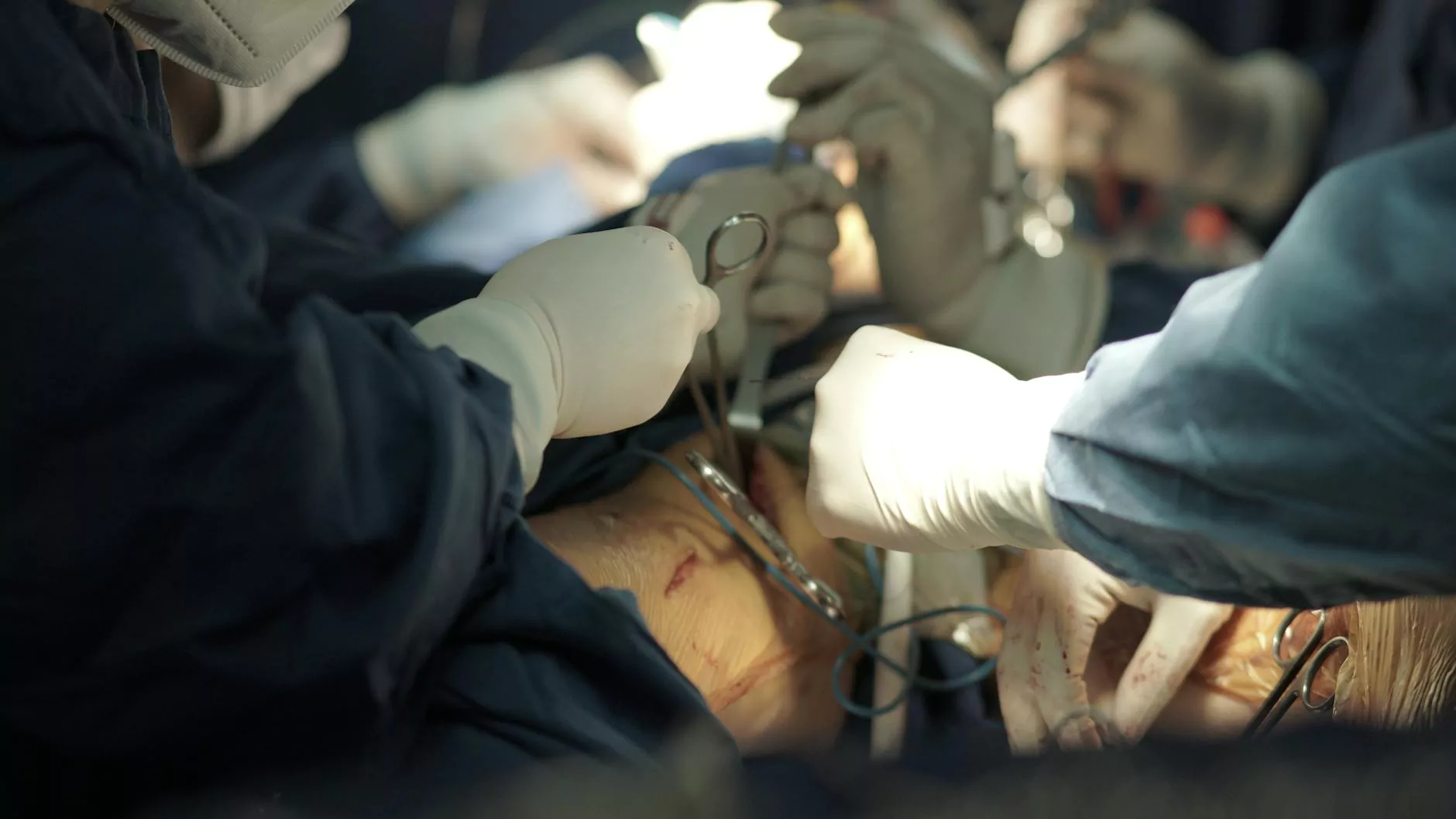Thoracic Pulmonary Surgery: A Comprehensive Guide

Thoracic pulmonary surgery is a specialized field focused on diagnosing and treating diseases affecting the lungs and other thoracic structures. As health concerns continue to evolve, understanding the dynamics and importance of this medical discipline has never been more essential. This article delves into the various aspects of thoracic pulmonary surgery, offering insights that are crucial for both patients and medical practitioners alike.
What is Thoracic Pulmonary Surgery?
Thoracic pulmonary surgery encompasses a variety of surgical procedures aimed primarily at treating conditions that impact the lungs and thoracic cavity. This subspecialty of surgery addresses a myriad of issues, including but not limited to:
- Lung cancer
- Chronic obstructive pulmonary disease (COPD)
- Pneumonia and lung infections
- Interstitial lung disease
- Thoracic tumors
- Pleural disorders
- Trauma injuries to the chest and lungs
Through these procedures, surgeons aim to relieve symptoms, improve lung function, and enhance the overall quality of life for patients.
The Role of Thoracic Surgeons
Thoracic surgeons are highly trained professionals skilled in surgical techniques specifically designed for the thoracic region. Their expertise is critical not only in performing complex surgeries but also in assessing and managing lung diseases effectively. These specialists undergo extensive training, including:
- Medical degree (MD or DO)
- General surgery residency (typically 5 years)
- Fellowship in thoracic surgery (2-3 years)
This rigorous training equips thoracic surgeons with the necessary skills to handle delicate procedures, such as:
- Video-assisted thoracoscopic surgery (VATS)
- Open thoracotomy
- Robotic-assisted thoracic surgery
Conditions Treated Through Thoracic Pulmonary Surgery
Understanding the diseases treated by thoracic pulmonary surgery helps patients make informed decisions regarding their health. Some of the prevalent conditions include:
Lung Cancer
One of the most critical areas of thoracic surgery is the treatment of lung cancer. Surgeons may perform lobectomies, pneumonectomies, or wedge resections depending on the tumor’s type and stage. Early detection and intervention are key to improving survival rates.
Chronic Obstructive Pulmonary Disease (COPD)
For patients suffering from advanced COPD, surgical interventions such as lung volume reduction surgery (LVRS) might be considered to improve breathing and quality of life significantly.
Trauma and Injuries
Thoracic surgeons are often involved in the management of traumatic injuries, including those resulting from accidents or falls. In such cases, procedures may involve repairing punctured lungs or addressing rib fractures that hinder respiratory function.
Innovations in Thoracic Pulmonary Surgery
The field of thoracic pulmonary surgery has seen remarkable advancements, greatly improving patient outcomes. Below are some of the key innovations:
- Minimally Invasive Techniques: The shift towards minimally invasive surgeries, such as VATS and robotic-assisted procedures, has allowed for less pain, reduced recovery time, and lower complication rates.
- Enhanced Imaging and Navigation Systems: The utilization of advanced imaging techniques, including CT scans and MRI, provides surgeons with greater precision during surgical interventions.
- Personalized Medicine: The emergence of targeted therapies and immunotherapy for lung cancer patients represents a significant advancement in treatment strategies.
Preparing for Thoracic Pulmonary Surgery
Preparation for surgery is crucial for ensuring the best possible outcomes. Patients should expect several preoperative steps, including:
- Comprehensive Evaluation: A thorough medical history and physical examination will be conducted to evaluate overall health.
- Diagnostic Testing: Tests such as imaging scans, pulmonary function tests, and blood tests will help in planning the surgery.
- Preoperative Education: Patients will receive information about the procedure, expected outcomes, and recovery process, reducing anxiety and fostering compliance.
The Recovery Process
Post-operative recovery is an essential phase following thoracic pulmonary surgery. Patients can expect:
- Duration of Hospital Stay: Depending on the complexity of the surgery, hospitalization may range from a few days to several weeks.
- Pain Management: Effective pain control strategies will be implemented, utilizing medications and non-pharmacological techniques.
- Rehabilitation: Pulmonary rehabilitation programs may be recommended to aid recovery and enhance lung function.
Conclusion
In summary, thoracic pulmonary surgery plays an instrumental role in treating serious lung conditions and significantly improving patients' quality of life. With ongoing advancements and the commitment of skilled thoracic surgeons, individuals facing lung health challenges can receive cutting-edge care tailored to their needs.
At Neumark Surgery, we are dedicated to providing exceptional thoracic surgical care. Our team of experts combines experience with compassion to ensure that every patient receives personalized attention throughout their surgical journey. If you or a loved one is facing a lung health issue, do not hesitate to reach out to our team for more information about how we can assist you.



